Difference Between Concrete Piles And Steel Piles
Update:2017-04-20 View(s):3583 Keywords :Piling Pipe,SSAW steel pipe,welded pipe,sawh steel pipe
Concrete Piling pipe
Concrete piling pipe are both similar and different to timber piles and to steel piles. Concrete and timber piles are considered “displacement” piles, meaning as they are driven, they actually displace the in-situ soil. Concrete piles can be relatively long, but are usually limited in length by what can actually fit onto trucks safely according Department of Transportation and other highway regulations. Splicing this type of pile is often an issue. Concrete piles may also be limited in length by bending stresses and two-point pick ups. These piles are usually more expensive to produce compared to timber piles but may be less expensive than steel piles.
Concrete piles usually correspond to a symmetric cross-section which simplifies an engineer’s calculations. Concrete piles can usually withstand hard driving situations, but calculations are often required such as performing a wave analysis to ensure the driving stresses do not damage the concrete piles. Concrete piles are not prone to decay like timber piles or corrosion like steel
Steel Piling pipe
Steel piling pipe, on the other hand, are again both similar and different to both timber and concrete piles. Most steel piles are not considered displacement piles like timber or concrete piles since steel piles slide past soil particles as they are being driven instead of displacing them. Steel piles can be made into any reasonable lengths since splicing is usually not an issue. Steel piles are often more expensive to produce than either timber or concrete ones. Steel piles, like concrete piles, can withstand hard driving situations but unlike concrete piles are not subject to a wave analysis because hardened steel can tolerate much higher axial stresses than concrete. Steel piles are not prone to decay but are very corrosive in nature especially in the vadose zone. Steel piles can obtain capacities between 400 and greater than 1000 kips.
Steel piles are not limited in cross-section like timber or concrete piles but can rolled to form H-3 piles, square piles, circular pipe piles, or even tapered piles, of which several of these will be the focus of the majority of the rest of this research.
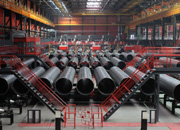 Threeway Steel is known as a professional supplier engaged in manufacturing and distributing a wide range of steel pipe, and our headquarter located the central part of China – Hunan and six associated factories throughout China.
Threeway Steel is known as a professional supplier engaged in manufacturing and distributing a wide range of steel pipe, and our headquarter located the central part of China – Hunan and six associated factories throughout China.
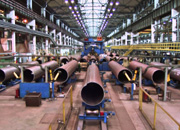 Threeway Steel is known as a professional supplier engaged in designing, manufacturing and distribution of a wide range of steel products with the headquarter located the central part of China – Hunan and six associated factories throughout China.
Threeway Steel is known as a professional supplier engaged in designing, manufacturing and distribution of a wide range of steel products with the headquarter located the central part of China – Hunan and six associated factories throughout China.
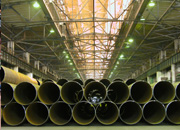 Threeway Steel is known as a professional supplier engaged in designing, manufacturing and distribution of a wide range of steel products with the headquarter located the central part of China – Hunan and six associated factories throughout China.
Threeway Steel is known as a professional supplier engaged in designing, manufacturing and distribution of a wide range of steel products with the headquarter located the central part of China – Hunan and six associated factories throughout China.
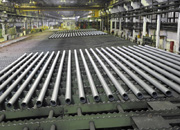 Threeway Steel is known as a professional supplier engaged in designing, manufacturing and distribution of a wide range of steel products with the headquarter located the central part of China – Hunan and six associated factories throughout China.
Threeway Steel is known as a professional supplier engaged in designing, manufacturing and distribution of a wide range of steel products with the headquarter located the central part of China – Hunan and six associated factories throughout China.
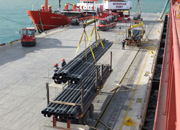 Threeway Steel is known as a professional supplier engaged in designing, manufacturing and distribution of a wide range of steel products with the headquarter located the central part of China – Hunan and six associated factories throughout China.
Threeway Steel is known as a professional supplier engaged in designing, manufacturing and distribution of a wide range of steel products with the headquarter located the central part of China – Hunan and six associated factories throughout China.

